
Find Help
More Items From Ergsy search
-

What impact has the sugar tax had on obesity rates?
Relevance: 100%
-

What is the sugar tax in the UK?
Relevance: 77%
-

What is the purpose of the sugar tax?
Relevance: 72%
-
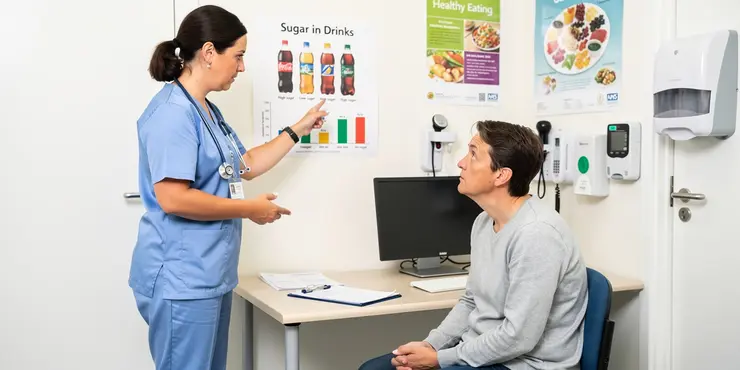
Has the sugar tax affected the sugar content in drinks?
Relevance: 72%
-

Who pays the sugar tax?
Relevance: 69%
-

What are the long-term goals of the sugar tax?
Relevance: 68%
-
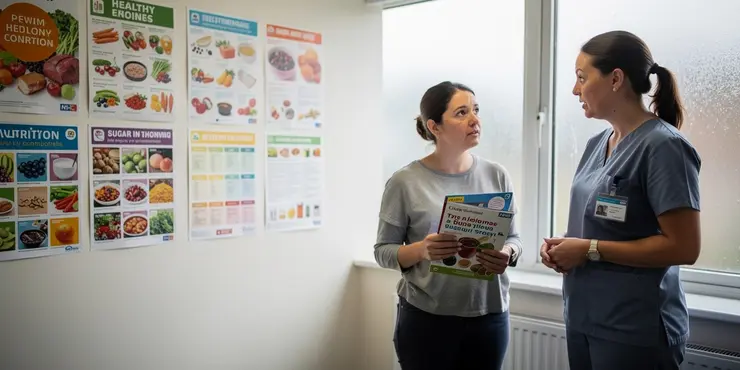
What are the rates for the sugar tax?
Relevance: 68%
-

Has the sugar tax been effective?
Relevance: 68%
-

How does the sugar tax affect consumers?
Relevance: 65%
-
Is the sugar tax applied to diet or zero sugar drinks?
Relevance: 65%
-
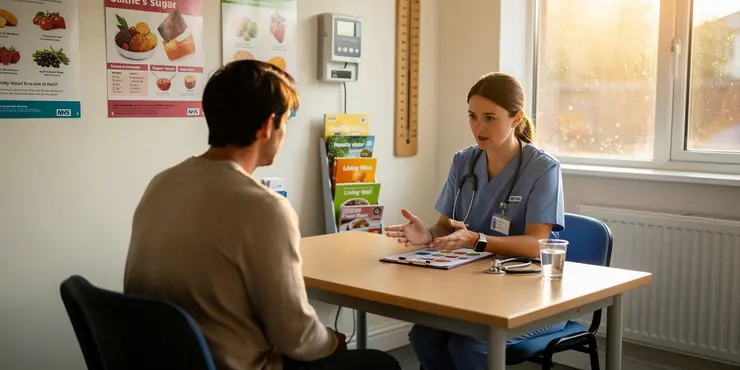
How does the sugar tax align with public health strategies?
Relevance: 63%
-

How is the revenue from the sugar tax used?
Relevance: 61%
-

Does the sugar tax apply to small businesses?
Relevance: 59%
-
How much revenue has the sugar tax generated?
Relevance: 58%
-

Has the sugar tax led to innovation in the drinks industry?
Relevance: 58%
-

Which drinks are exempt from the sugar tax?
Relevance: 56%
-

Is childhood obesity a concern in the United Kingdom?
Relevance: 54%
-

Study Finds Alarming Increase in Childhood Obesity Rates Post-Pandemic
Relevance: 53%
-

What role do sugary drinks play in obesity?
Relevance: 52%
-

Obesity
Relevance: 52%
-
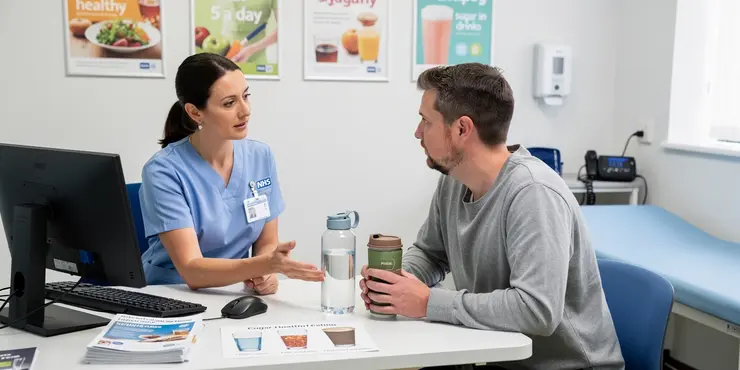
When was the sugar tax introduced in the UK?
Relevance: 51%
-

How is the sugar tax applied?
Relevance: 51%
-

Are there any societal factors that contribute to obesity?
Relevance: 49%
-

How does obesity affect bowel cancer rates?
Relevance: 49%
-

Is obesity more prevalent in certain regions of the UK?
Relevance: 47%
-

What are the current statistics on childhood obesity in the UK?
Relevance: 45%
-

Have any other countries implemented a sugar tax similar to the UK?
Relevance: 45%
-
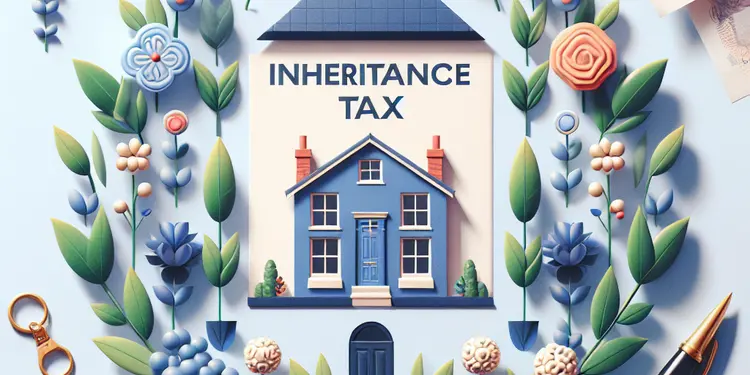
What is the nil rate band in Inheritance Tax?
Relevance: 45%
-

What causes obesity?
Relevance: 44%
-

Could there be a reduction in the basic rate of income tax by 2026?
Relevance: 43%
-
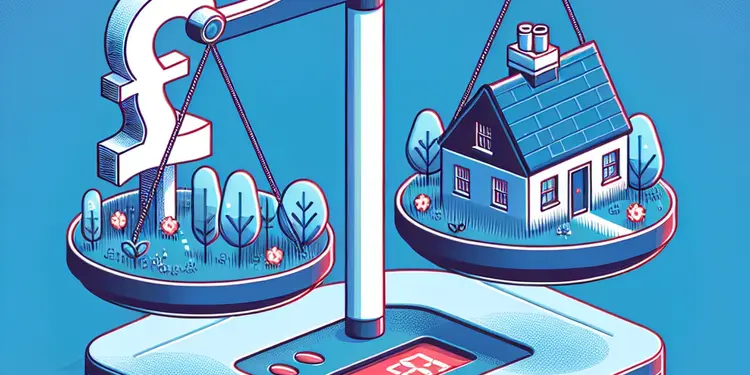
Do all beneficiaries pay the same inheritance tax rate?
Relevance: 43%
-

Is childhood obesity a concern in the United Kingdom?
Relevance: 43%
-
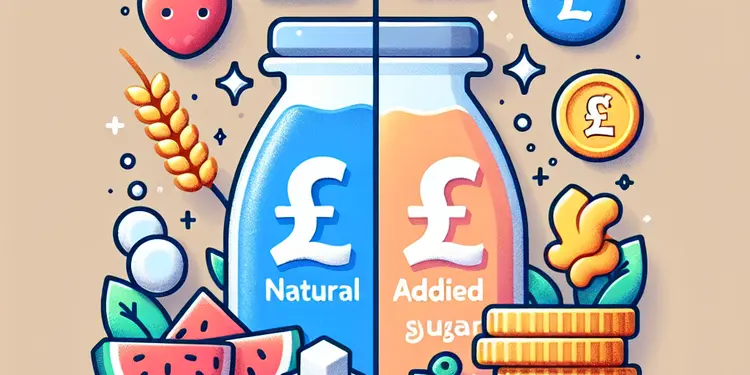
What is the difference between natural sugar and added sugar?
Relevance: 41%
-
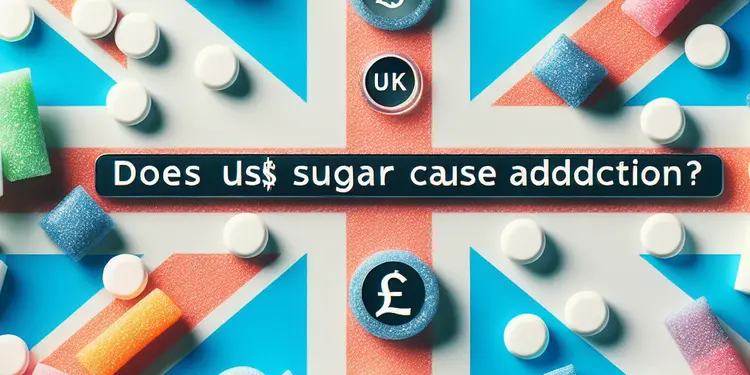
Does sugar cause addiction?
Relevance: 41%
-

How can obesity be prevented?
Relevance: 41%
-
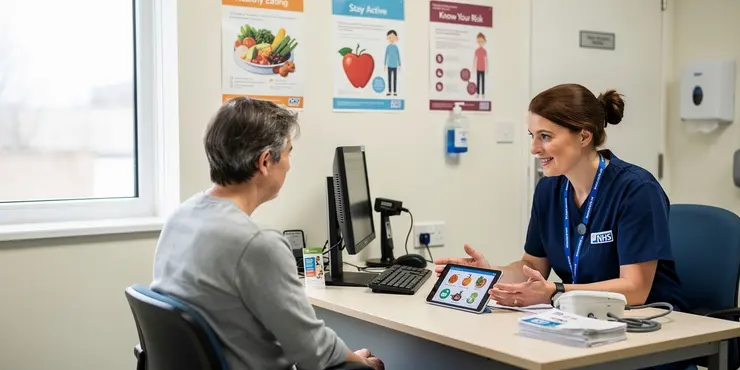
What treatments are available for obesity?
Relevance: 41%
-
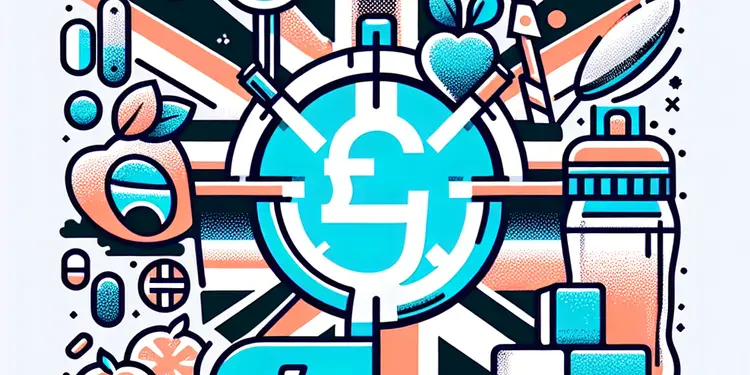
Are sugar substitutes healthier than regular sugar?
Relevance: 40%
-

Why is it important to limit sugar intake?
Relevance: 40%
-
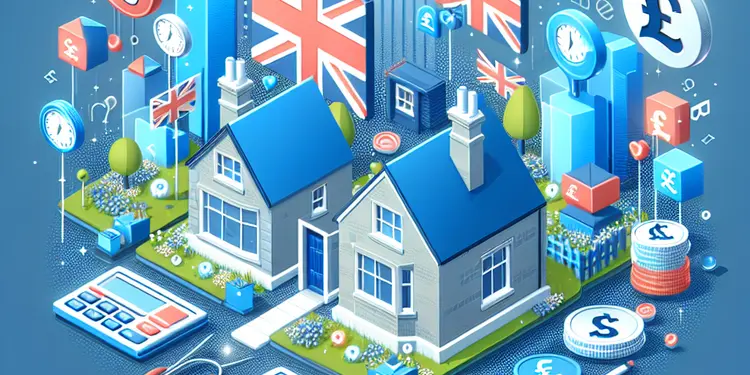
What tax rate applies to capital gains from property sales?
Relevance: 40%
-

Can genetics influence obesity?
Relevance: 40%
Introduction
The sugar tax, officially known as the Soft Drinks Industry Levy, was introduced in the UK in April 2018. The primary aim of this levy was to reduce the consumption of sugar-sweetened beverages, which are considered a significant contributor to the nation's obesity crisis. This tax imposed a charge on manufacturers based on the sugar content of their drinks, incentivizing companies to reformulate products to contain less sugar.
Immediate Effects on Consumption
Upon its implementation, the sugar tax had a noticeable impact on the formulation of beverages. Many manufacturers reduced the sugar content of their drinks to avoid the levy, leading to fewer sugar calories being consumed by the public. Several studies indicated a drop in sugar intake from soft drinks by as much as 10 grams per day per person, showcasing an immediate shift in consumer behavior driven by product reformulation and switching to less sugary alternatives.
Impact on Obesity Rates
While the sugar tax successfully reduced sugar consumption from drinks, its impact on overall obesity rates has been less clear and is subject to ongoing research. Obesity is a multifaceted issue, influenced by various dietary, lifestyle, and genetic factors, and the reduction of sugar in soft drinks alone is not enough to cause significant declines in obesity rates. However, the sugar levy represents a positive step in tackling the issue, by raising awareness and promoting healthier choices.
Long-term Cultural Shifts
Beyond immediate dietary changes, the sugar tax has contributed to a broader cultural shift in the UK regarding the consumption of sugary products. It has increased awareness about the health risks associated with excessive sugar intake and spurred discussions about nutrition labeling, healthy eating, and public health policies. The levy has also inspired other countries to adopt similar measures, cementing the UK's role as a leader in public health initiatives aimed at reducing sugar consumption and subsequent health issues.
Criticism and Challenges
Despite its positive goals, the sugar tax has faced criticism. Some argue it disproportionately affects low-income families who spend a larger percentage of their income on food and drinks. Critics also point out that focusing solely on soft drinks ignores other sugar-laden products contributing to obesity. Addressing obesity requires a multifaceted approach including education, broader dietary reform, and lifestyle changes.
Conclusion
The UK’s sugar tax has played a role in reducing sugar consumption from beverages, which is an essential step in addressing obesity. However, the obesity epidemic requires comprehensive strategies to achieve sustainable reductions in obesity rates. Future policies may need to expand beyond beverages to effectively tackle this complex public health challenge. The sugar tax remains an influential model for evidence-based health policy, encouraging both the reformulation of products and healthier consumer habits.
Introduction
The sugar tax is a special charge on sugary drinks. It started in the UK in April 2018. The goal is to help people drink fewer sugary drinks. These drinks can make people unhealthy and overweight. Companies have to pay more money if their drinks have lots of sugar. This makes them change their drinks to have less sugar.
Immediate Effects on Consumption
When the sugar tax started, many drink makers changed their recipes. They put in less sugar to avoid the tax. This means people started drinking less sugar from these drinks. Research shows that each person drank about 10 grams less sugar from these drinks every day. People began to choose drinks with less sugar.
Impact on Obesity Rates
The sugar tax helped people drink less sugar, but it is not clear if it helped people lose weight. Being overweight can be caused by many things like what you eat, how you live, and your genes. Drinking less sugar is good, but there are other things that need to be done to help people lose weight. Still, the sugar tax is a good start to encourage healthy choices.
Long-term Cultural Shifts
Besides drinking less sugar, the sugar tax has made people think more about health. People are now more aware of the bad things sugar can do to health. There are more talks about healthy eating and better food labels. Other countries are also starting to use similar taxes. This helps the UK lead the way in teaching people to eat and drink better and be healthier.
Criticism and Challenges
Some people do not like the sugar tax. They say it can be hard for families with less money because they spend more on food and drinks. Also, the tax only looks at sugary drinks and not food with lots of sugar. To help with being overweight, we need to do more than just tax drinks. We need to learn more about healthy eating and change how we eat and live.
Conclusion
The UK’s sugar tax has helped people drink less sugar. This is a good step in helping people not be overweight. But, to really help people, we need more than just this tax. We need to look at other ways to help people be healthy. The sugar tax shows that new ideas can help people make better choices about what they eat and drink.
Frequently Asked Questions
What is the sugar tax?
The sugar tax, also known as the sugary drinks tax or soda tax, is a policy measure where a levy is placed on sugary drinks to reduce their consumption and combat obesity.
When was the sugar tax implemented?
The implementation date of the sugar tax varies by country. For example, the UK implemented its sugar tax in April 2018.
How does the sugar tax aim to reduce obesity rates?
The sugar tax aims to reduce obesity by discouraging the consumption of sugary drinks, encouraging manufacturers to reformulate products with less sugar, and raising awareness about the health impacts of sugar.
Has the sugar tax led to a reduction in sugary drink consumption?
Yes, there is evidence that the sugar tax has led to a reduction in the consumption of sugary drinks in several regions where it has been implemented.
Has the sugar tax directly caused a decline in obesity rates?
Firm causal evidence connecting the sugar tax directly to a decline in obesity rates can be challenging to establish due to various factors influencing obesity, but some studies suggest a positive impact.
What other factors influence obesity rates besides sugary drink consumption?
Obesity rates are influenced by a variety of factors, including overall diet, physical activity, genetics, and environmental and socio-economic elements.
Have any studies shown a correlation between sugar tax and reduced obesity rates?
Some studies have shown that regions with a sugar tax have experienced reductions in both sugary drink purchases and a slow decrease in obesity rates, though correlation does not imply causation.
How have manufacturers responded to the sugar tax?
Many manufacturers have reformulated products to contain less sugar to avoid the tax, offering lower-sugar or sugar-free products.
What criticisms exist regarding the sugar tax?
Critics argue that the sugar tax is regressive, disproportionately affects low-income individuals, and may not significantly impact obesity rates without broader dietary and lifestyle changes.
Are there any exemptions to the sugar tax?
In some regions, certain drinks, such as 100% fruit juices and milk-based drinks, may be exempt from the sugar tax.
Have other countries besides the UK implemented a sugar tax?
Yes, several countries including Mexico, France, and South Africa have implemented similar taxes on sugary drinks.
What impact has the sugar tax had on the sales of sugary drinks?
The sugar tax has generally led to decreased sales of sugary drinks and increased sales of sugar-free or low-sugar alternatives.
Is there a difference in the effectiveness of the sugar tax in urban vs rural areas?
The effectiveness can vary, with urban areas sometimes experiencing larger declines in sugary drink consumption due to greater awareness and access to alternatives.
Has consumer awareness of sugar content increased due to the sugar tax?
Yes, the sugar tax has contributed to greater consumer awareness of sugar content and its health effects, prompting more informed choices.
Has the sugar tax led to financial outcomes beyond health impacts?
The sugar tax has generated revenue that some governments have allocated to health initiatives, though its primary intent is health-related.
How does the effectiveness of the sugar tax compare to other obesity reduction strategies?
While effective in reducing sugary drink consumption, the sugar tax should be part of a comprehensive strategy that includes nutrition education and promotion of physical activity.
Can the impact of the sugar tax on obesity rates be easily isolated?
No, isolating the impact of the sugar tax from other variables affecting obesity rates is complex and requires thorough, long-term studies.
Are there plans to expand the sugar tax to other sugary products?
There are discussions in some regions about expanding the tax to include a wider range of sugary products, but this varies by jurisdiction.
What role does public opinion play in the implementation of the sugar tax?
Public opinion can significantly impact the implementation and acceptance of the sugar tax, with general support often linked to increased awareness of health issues.
What are the long-term goals of the sugar tax?
The long-term goals of the sugar tax are to reduce the prevalence of obesity, improve public health, and decrease healthcare costs related to sugar-induced health issues.
What is the sugar tax?
The sugar tax is money added to drinks with a lot of sugar. It is to help people make healthy choices and drink less sugar.
Here are some tips and tools that might help:
- Use pictures to show how much sugar is in a drink.
- Watch videos about healthy eating.
- Ask someone to read with you and explain things.
The sugar tax is a rule that makes sugary drinks cost more money. It is also called the sugary drinks tax or soda tax. The idea is to get people to drink less sugary drinks. This can help stop people from becoming too overweight.
When did the sugar tax start?
The sugar tax started in April 2018. This means drinks with a lot of sugar cost more. This helps people choose healthier drinks.
You can use a calendar to remember important dates.
The start date of the sugar tax is different in each country. For example, the UK started its sugar tax in April 2018.
How does the sugar tax help people stay healthy?
The sugar tax makes drinks with a lot of sugar cost more. This helps people buy drinks that have less sugar. When people drink less sugar, they might not gain as much weight.
If you need help reading, you can:
- Ask someone to read with you.
- Use drawings or pictures to understand better.
The sugar tax is a special charge on sugary drinks. It wants to help people eat healthy and stop them from getting too heavy. It tries to get drink makers to use less sugar. It also helps people learn about how too much sugar can be bad for health.
If you find reading hard, you can use tools like audiobook apps or text-to-speech to listen to words instead of reading them.
Has the sugar tax helped people drink less sugary drinks?
Some people wondered if making sugary drinks cost more would help people buy less. A sugar tax is when a bit of extra money is added to these sweet drinks.
If you want to know more about this, you can try using pictures or videos to help. You can also ask someone to read it with you.
Yes, there is proof that the sugar tax has helped people drink less sugary drinks in many places where the tax is used.
Did the sugar tax help people be less overweight?
The sugar tax adds money to sugary drinks to make them cost more. This is to stop people from buying them. The goal is to help people drink fewer sugary drinks and be healthier.
Here are some ways to make reading easier:
- Use a ruler or your finger to follow the words while you read them.
- Break the reading into small pieces and take breaks in between.
- Read with a buddy or ask a helper to read with you.
- Use audiobooks or text-to-speech tools to listen while you read.
It can be hard to prove that the sugar tax makes people less overweight, because many things can make a person overweight. But some studies say the sugar tax helps.
What other things can make people gain weight besides drinking sugary drinks?
Many things can make people gain too much weight. These things include what we eat, how much we move, our genes, and where we live or how much money we have.
Do studies show that a sugar tax helps people get less fat?
Some places have a sugar tax, which means you pay more for sugary drinks. In these places, people buy fewer sugary drinks. Over time, there are fewer people who are very overweight. But, we cannot be sure that the sugar tax is the only reason for this.
What did companies do about the sugar tax?
The sugar tax is a rule to make drinks healthier. Companies had to make changes. Here is what they did:
- Some companies put less sugar in drinks.
- Others made smaller drink sizes.
- Some made new drinks with no sugar.
If reading is hard, you can try these tips:
- Ask someone to read with you.
- Use a dictionary to help with hard words.
- Try reading in a quiet place.
A lot of companies have changed their products to have less sugar. They did this to avoid paying extra money. Now, they offer products with little or no sugar.
What do some people not like about the sugar tax?
Some people think the sugar tax is unfair. It can be hard for people who don’t have a lot of money. They say it might not help people get healthier unless they also eat better and move more.
Are there any exceptions to the sugar tax?
Is there any drink or food that does not have to pay the sugar tax?
You can use tools like pictures or apps with voice to help understand better.
In some places, drinks like 100% fruit juices and milk drinks might not have extra sugar tax added.
Do other countries have a sugar tax like the UK?
Yes, some other countries have a sugar tax too. A sugar tax means people pay more for sugary drinks.
Here are some ways to understand and remember this:
- Use pictures to help remember which countries have a sugar tax.
- Make a list of countries with a sugar tax.
- Talk to someone about why countries have a sugar tax.
Yes, some countries like Mexico, France, and South Africa have taxes on sugary drinks.
How has the sugar tax changed the sale of sugary drinks?
The sugar tax is a rule that makes sugary drinks more expensive.
Has this rule made people buy fewer sugary drinks?
To help understand, you can:
- Look at pictures or charts that show sales before and after the tax.
- Use simple lists to see differences.
- Talk with someone who can explain it simply.
The sugar tax means people are buying less sugary drinks. They are buying more drinks with no sugar or little sugar.
Does the sugar tax work differently in cities and countryside areas?
How well something works can be different in each place. In cities, people might drink less sugary drinks because they know more about it and have other drinks to choose from.
Do people know more about sugar in drinks because of the sugar tax?
Yes, the sugar tax helps people know more about how much sugar is in food and how it can affect their health. This helps people make better choices.
Has the sugar tax changed money things, not just health?
The sugar tax makes money for the government. Some of this money is used to help people be healthier. The main reason for the sugar tax is to make people healthier.
How well does the sugar tax work compared to other ways to help people lose weight?
The sugar tax is extra money people pay when buying sugary drinks. This is to help people drink less sugar.
There are other ways to help people lose weight too, like:
- Eating more fruits and vegetables
- Doing exercise
- Learning about healthy foods
- Making healthy snacks cheaper
Some things can help you understand better:
- Use simple words to explain ideas.
- Use pictures to show what you mean.
Think about which ways work best for you or your family to stay healthy and strong.
The sugar tax helps people drink less sugary drinks. But, we need to do more. We should also teach people about healthy eating and encourage them to be active.
Can we see how the sugar tax affects obesity rates?
The sugar tax means extra money is added to drinks with lots of sugar. It's there to make people drink less sugary stuff.
Seeing if the sugar tax helps people not get fat is tricky. Other things also change obesity rates, like exercise and food choices.
Here are some ways to understand better:
- Look at information about what people eat and drink before and after the tax.
- Check if more people are exercising.
- See if fewer people buy sugary drinks.
It's important to look at everything, not just the sugar tax.
No, figuring out how the sugar tax changes obesity rates is hard. It needs careful study over a long time. Many other things can also affect obesity.
Will the sugar tax cover more sugary foods soon?
In some places, people are talking about making the tax bigger. They want to include more sugary foods and drinks. But this is different in each place.
How does what people think affect the use of the sugar tax?
The sugar tax is when companies pay money to sell sugary drinks.
People’s thoughts and feelings can change how the sugar tax is used.
If many people think the tax is good, it might stay.
If many people do not like it, the government might change it.
Tools like pictures and videos can help you understand more about the sugar tax.
What people think is important for how the sugar tax works. If more people understand health problems, they might support the sugar tax more.
Here are some tips to help understand better:
- Read slowly and take your time.
- Ask someone you trust if you need help.
- Use online tools like text-to-speech to listen instead of reading.
- Break down big words into smaller sounds.
What are the long-term goals of the sugar tax?
The sugar tax aims to make people healthier. It tries to get companies to put less sugar in drinks. This can help people drink less sugar and lower their risk of getting sick. The goal is to have fewer people with health problems in the future.
Tools to help you:
- Use simple words to explain what "sugar tax" means.
- Use pictures or videos to show how too much sugar can be bad for your health.
- Talk about how the sugar tax helps make drinks better for us.
The sugar tax has some big goals. It wants to help people not get too overweight, make everyone healthier, and save money on healthcare by stopping health problems caused by too much sugar.
Useful Links
This website offers general information and is not a substitute for professional advice.
Always seek guidance from qualified professionals.
If you have any medical concerns or need urgent help, contact a healthcare professional or emergency services immediately.
Some of this content was generated with AI assistance. We’ve done our best to keep it accurate, helpful, and human-friendly.
- Ergsy carfully checks the information in the videos we provide here.
- Videos shown by Youtube after a video has completed, have NOT been reviewed by ERGSY.
- To view, click the arrow in centre of video.
- Most of the videos you find here will have subtitles and/or closed captions available.
- You may need to turn these on, and choose your preferred language.
- Go to the video you'd like to watch.
- If closed captions (CC) are available, settings will be visible on the bottom right of the video player.
- To turn on Captions, click settings .
- To turn off Captions, click settings again.
More Items From Ergsy search
-

What impact has the sugar tax had on obesity rates?
Relevance: 100%
-

What is the sugar tax in the UK?
Relevance: 77%
-

What is the purpose of the sugar tax?
Relevance: 72%
-

Has the sugar tax affected the sugar content in drinks?
Relevance: 72%
-

Who pays the sugar tax?
Relevance: 69%
-

What are the long-term goals of the sugar tax?
Relevance: 68%
-

What are the rates for the sugar tax?
Relevance: 68%
-

Has the sugar tax been effective?
Relevance: 68%
-

How does the sugar tax affect consumers?
Relevance: 65%
-
Is the sugar tax applied to diet or zero sugar drinks?
Relevance: 65%
-

How does the sugar tax align with public health strategies?
Relevance: 63%
-

How is the revenue from the sugar tax used?
Relevance: 61%
-

Does the sugar tax apply to small businesses?
Relevance: 59%
-
How much revenue has the sugar tax generated?
Relevance: 58%
-

Has the sugar tax led to innovation in the drinks industry?
Relevance: 58%
-

Which drinks are exempt from the sugar tax?
Relevance: 56%
-

Is childhood obesity a concern in the United Kingdom?
Relevance: 54%
-

Study Finds Alarming Increase in Childhood Obesity Rates Post-Pandemic
Relevance: 53%
-

What role do sugary drinks play in obesity?
Relevance: 52%
-

Obesity
Relevance: 52%
-

When was the sugar tax introduced in the UK?
Relevance: 51%
-

How is the sugar tax applied?
Relevance: 51%
-

Are there any societal factors that contribute to obesity?
Relevance: 49%
-

How does obesity affect bowel cancer rates?
Relevance: 49%
-

Is obesity more prevalent in certain regions of the UK?
Relevance: 47%
-

What are the current statistics on childhood obesity in the UK?
Relevance: 45%
-

Have any other countries implemented a sugar tax similar to the UK?
Relevance: 45%
-

What is the nil rate band in Inheritance Tax?
Relevance: 45%
-

What causes obesity?
Relevance: 44%
-

Could there be a reduction in the basic rate of income tax by 2026?
Relevance: 43%
-

Do all beneficiaries pay the same inheritance tax rate?
Relevance: 43%
-

Is childhood obesity a concern in the United Kingdom?
Relevance: 43%
-

What is the difference between natural sugar and added sugar?
Relevance: 41%
-

Does sugar cause addiction?
Relevance: 41%
-

How can obesity be prevented?
Relevance: 41%
-

What treatments are available for obesity?
Relevance: 41%
-

Are sugar substitutes healthier than regular sugar?
Relevance: 40%
-

Why is it important to limit sugar intake?
Relevance: 40%
-

What tax rate applies to capital gains from property sales?
Relevance: 40%
-

Can genetics influence obesity?
Relevance: 40%


